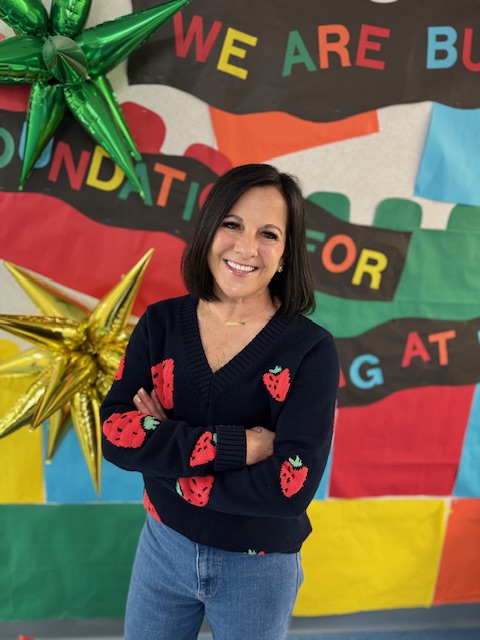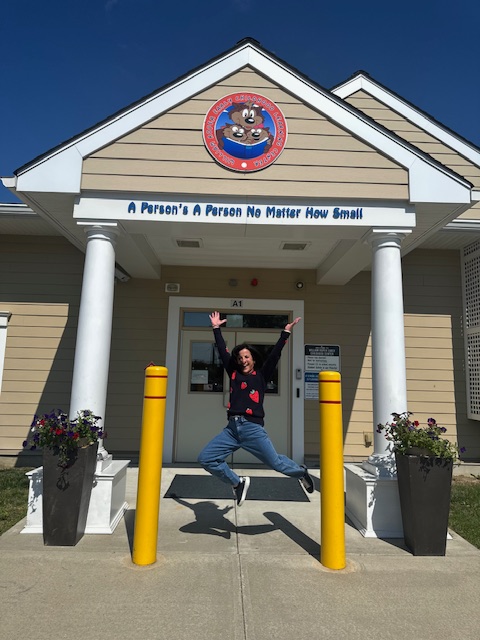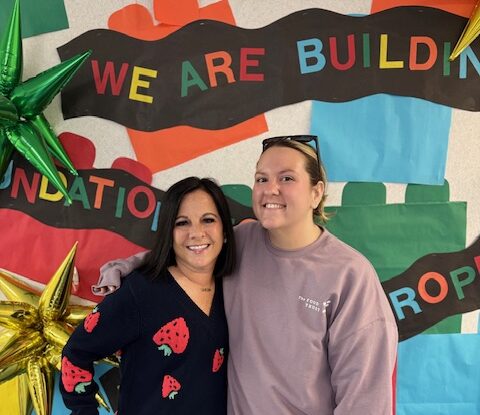By Naima Chowdhury
As part of our Partner Spotlight series, The Food Trust recently connected with Tracy Demarest from William Roper Early Childhood Learning Center (ECLC) to explore their impactful work.
Located in Salem County, New Jersey, William Roper School is a valued member of our Farm to Early Care and Education (ECE) network. This program engages young learners age 3 to 5 through curriculum-based nutrition lessons, hands-on activities such as gardening, and dedicated outreach and support for their caregivers.

A Growing Legacy
Tracy Demarest has been with William Roper School since its doors opened in November 2013, bringing over 20 years of experience within the district. Her expertise in special education allows her to wear many hats, serving as a Preschool Instructional Coach, Intervention Specialist and a vital Parent Liaison.
“With our program and children here, we want them to be as well-rounded as possible,” she explained. “This includes things like not only learning letters and numbers, but also being good community members and helpers … it all goes together.”
Farm to ECE: Bringing Nutrition & Hands-On Learning to the Classroom
One of the biggest impacts of the Farm to ECE program at William Roper has been its nutrition education component, which was new to the school prior to partnering with The Food Trust.
Tracy highlighted the role of Sam Hughes, Farm to ECE Program Manager, who introduced what began as mini nutrition lessons and sensory-based learning activities to the classrooms.
Through Farm to ECE, students are introduced to a featured “harvest of the month” and participate in other interactive food experiences such as taste tests and crafts. The hands-on approach has made learning about healthy eating engaging for young learners.
“The Food Trust gave us the confidence to take these lessons and run with them,” Tracy shared. “Now, we implement our own cooking projects, like making potato latkes for Jewish American Heritage Month, and use the resources provided–aprons, bowls, potholders, and even a toaster oven–to create hands-on learning experiences for our students.”
Engaging Families and Community
A core belief at William Roper School is that learning doesn’t happen in isolation–it must include families to be truly effective.
“You can’t teach kids in a bubble … the family should be aware of everything we’re doing,” Tracy emphasized. “We want parents to feel like this is their school too, their community too.”
This belief drives the school to prioritize hands-on, interactive events over lectures or seminars. Some examples include:
- Love Your Health Night: annual event featuring food tastings inspired by Farm to ECE lessons
- Make and Take Activities: DIY oatmeal kits, lunchbox and snack packs, and homemade pancake mix bags
- Gardening Together: caregivers and students helped maintain the school’s garden throughout the year and over the summer
These efforts extend beyond the classroom and into the home, encouraging families to continue healthy eating habits.
Looking Back: School Garden
One notable project was the school garden. It was used for taste tests, interactive learning, and parent engagement. The Food Trust provided supplies such as kid-friendly gardening tools, soil, and seeds.
However, the garden came with challenges. Many crops weren’t ready to harvest until the summer, when school was closed, limiting participation. Despite these challenges, interest remains in reviving the garden in a sustainable way.
Looking Ahead: Future of Farm to ECE
When asked about the future of Farm to ECE activities at William Roper, Tracy shared her enthusiasm for continuing the partnership with The Food Trust and expanding initiatives
“We’re always willing to try new things, we have the students, we have the families–just need more ideas to make events more exciting and enticing.”

William Roper remains committed to fostering a strong school-community connection and ensuring that children continue to develop lifelong healthy eating habits.
A Recipe for Success
The Farm to ECE program at William Roper School shows how early childhood centers can integrate nutrition, food education, and hands-on experiences into their curriculum. Through strong leadership, dedicated staff, and engaged community, the school has not only embraced Farm to ECE principles but also become a model for others looking to do the same.
With a foundation built on learning, family, and a love for food, William Roper continues to create healthier futures–one bite at a time.
